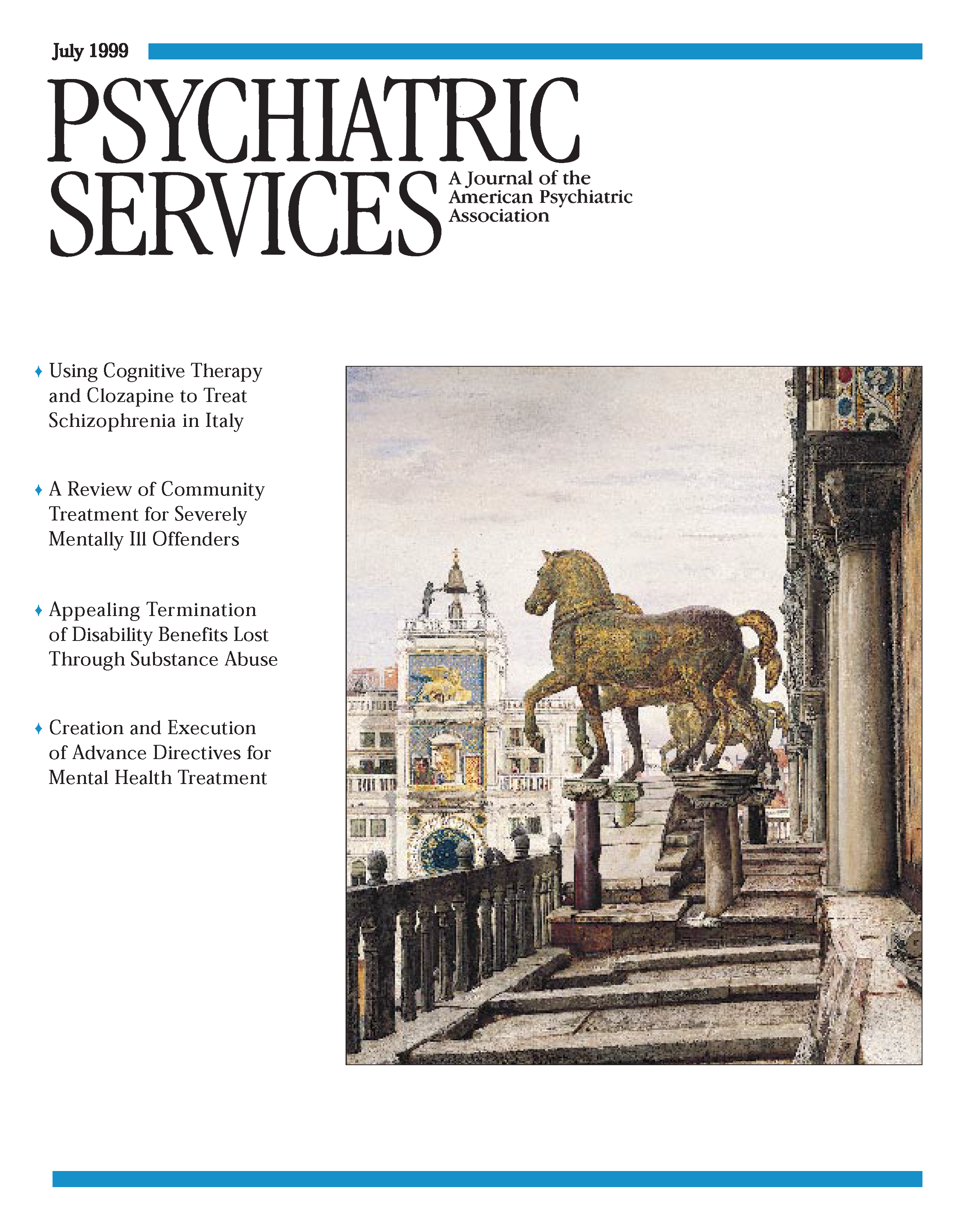Herbal Medicines as a Factor in Delirium
To the Editor: This report documents a brief episode of acute delirium, possibly induced by exposure to St. John's wort, valerian root, and loperamide. St. John's wort, or Hypericum perforatum, has been taken by people to treat mood disorders and is being prescribed in Germany for depression (1). The means by which it improves affective conditions is unclear, yet its extract exerts monoamine-oxidase-inhibitor (MAOI) actions (1,2). Valerian root has been used for centuries to improve sleep (3) but, as with St. John's wort, its mechanism of action is uncertain. Loperamide is an opioid-based antidiarrheal over-the-counter drug, a congener of the narcotic analgesic meperidine.
The patient, a 39-year-old white woman with a history of depression and migraine headaches, was hospitalized in a disoriented, agitated, and confused state. On the recommendation of friends, she had been taking two tablets of St. John's wort and a valerian tablet daily for six months. On admission she was afebrile and had a pulse rate of 140 beats per minute, a respiratory rate of 24 breaths per minute, and blood pressure of 140/100 mm Hg. Her pupils were dilated at six millimeters and unreactive. Laboratory reports found complete blood count, sodium, blood urea nitrogen, creatinine, and liver function tests within normal ranges, an elevated glucose of 139 mg/dL, and a potassium concentration of 2.9 mmol/L. A toxicology screen was positive for opioids. An electrocardiogram and a computerized tomography brain scan were normal.
In the emergency room the patient was given charcoal as a routine treatment for toxicity. Thiamine 100 mg was prescribed for vitamin deficiency and neuroprotective purposes, and naltrexone 2 mg was administered to counteract any opioid contribution to her altered mentation. For a possible infection she initially received 1 gram of the antibiotic ceftriaxone. Lorazepam 8 mg was given as a calmative agent. Intubation was briefly required. Within two days the patient recovered from the delirium. Further history revealed recent ingestion of loperamide for diarrhea, which can be a side effect of St. John's wort.
Use of loperamide explained the positive finding for opioids on the toxicology screen. The observed delirium could be a MAOI-induced reaction to a drug or food product, an interaction between St. John's wort and valerian root, or possible interactions of these herbal medicines with loperamide, which could theoretically induce a MAOI-drug reaction.
The patient claimed that the herbal medicines had only a minor effect on her depression but a profoundly positive therapeutic benefit in reducing migraines. Interestingly, she previously had made frequent emergency room visits for meperidine treatment of headaches before taking St. John's wort. Had she received meperidine while taking St. John's wort, a pharmaceutically induced hypertensive crisis potentially could have occurred because of its MAOI properties. Loperamide might have precipitated a similar adverse response. Some reports have suggested that such agents can cause delirium, but the connection is unproven (4,5).
This case study illustrates the possible risks of concomitant use of herbal and over-the-counter drugs. Some herbal medications can cause drug interactions. Moreover, the content and use of these substances are unregulated. Since their use is on the rise, new interactions may be reported. Physicians should routinely ask patients about the use of herbal products and over-the-counter medicines and discuss the possible dangers of using these agents in combination with various medications and foods.
Dr. Khawaja is affiliated with the department of psychiatry at New York Medical College in Valhalla, New York. Dr. Marotta and Dr. Lippmann are with the department of psychiatry and behavioral sciences at the University of Louisville School of Medicine and the University of Louisville Hospital in Louisville, Kentucky.
1. Linde K, Ramirez G, Mulrow CD, et al: St John's wort for depression: an overview and meta-analysis of randomised clinical trials. British Medical Journal 313:253-258, 1996Crossref, Medline, Google Scholar
2. St John's wort, in Facts and Comparisons: The Review of Natural Products. St Louis, Walters Kluwar, 1997Google Scholar
3. Wong AHC, Smith M, Boon HS: Herbal remedies in psychiatric practice. Archives of General Psychiatry 55:1033-1044, 1998Crossref, Medline, Google Scholar
4. Willey LB, Mady SB, Cobaugh DJ, et al: Valerian overdose: a case report. Veterinary and Human Toxicology 37:364-365, 1995Medline, Google Scholar
5. Schwartz RH, Rodrigues WJ: Toxic delirium possibly caused by loperamide. Journal of Pediatrics 118:656-657, 1991Crossref, Medline, Google Scholar



